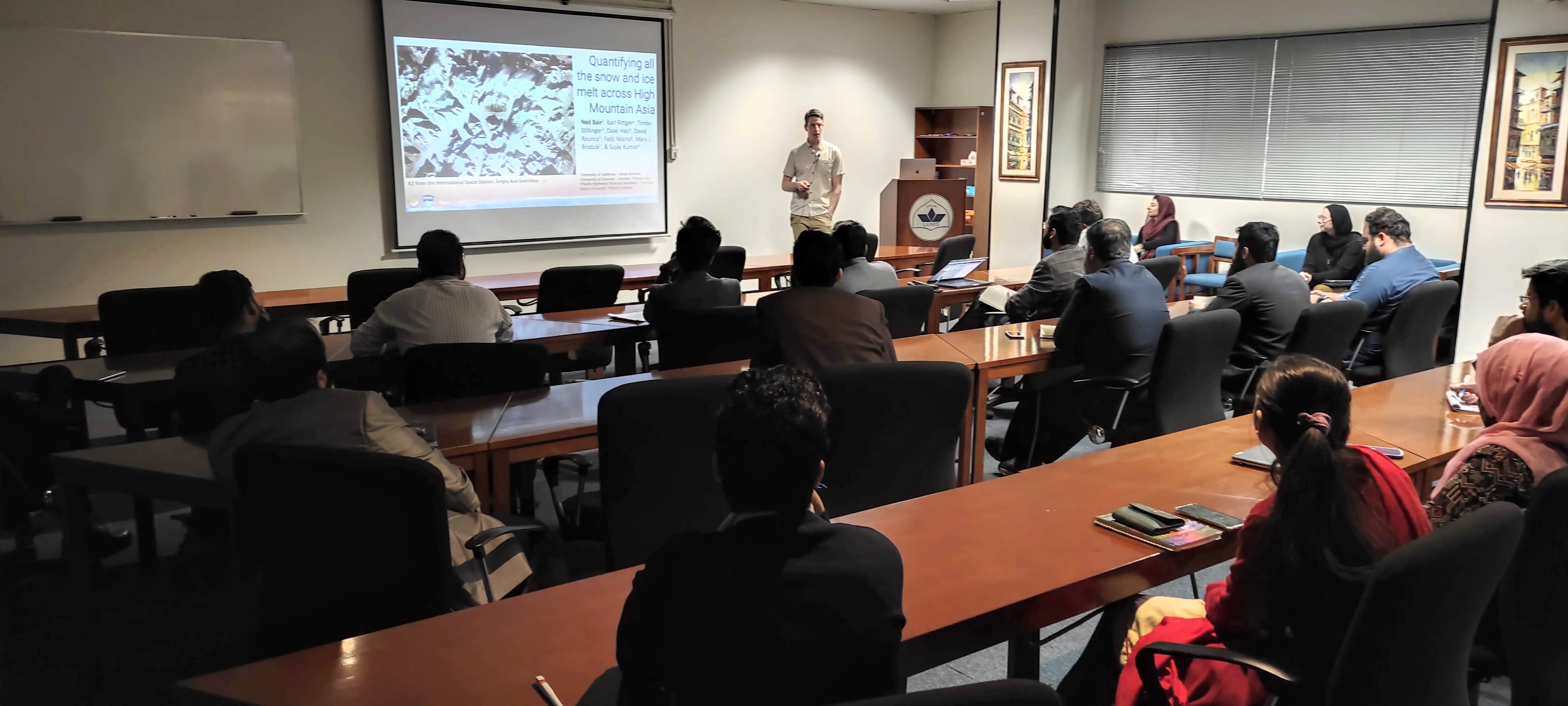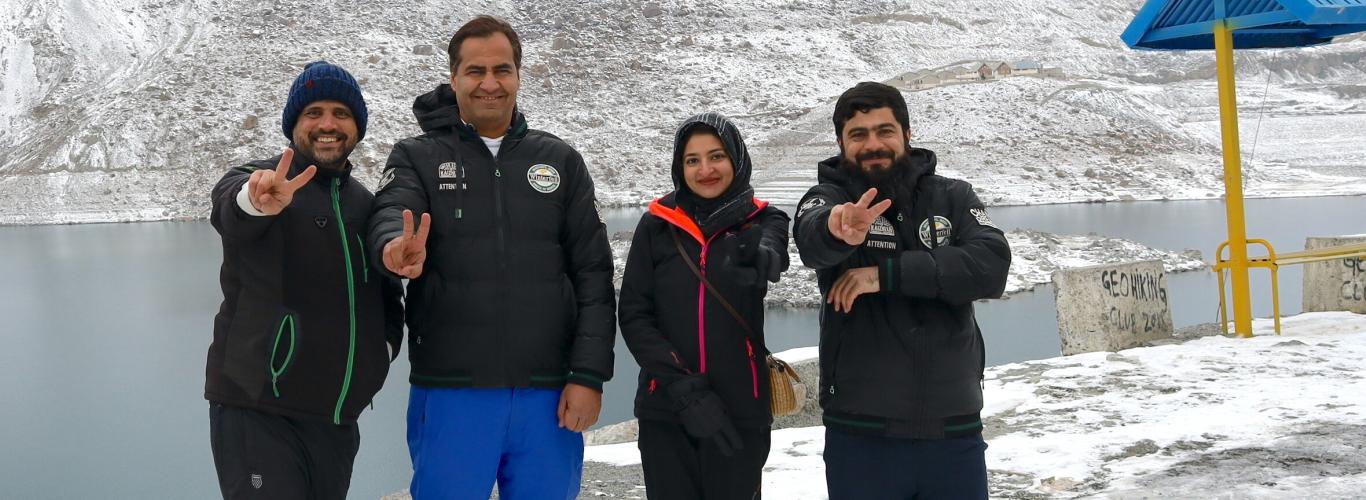WIT conducts expedition to collect in-situ snow data from Skardu
The melting of snow in the Karakorum and Himalayan mountains is one of the primary sources of freshwater in Pakistan and critically impacts water available for agricultural activities. However, a dearth of technology to measure snowmelt in the area due to remote sensing challenges results in a lack of awareness about potential hazards and increases the risk of unprecedented flood events. To address this problem, a team from the Center for Water Informatics and Technology (WIT), LUMS visited Skardu, Gilgit Baltistan from 10th to 13th February 2023 in order to collect in-situ hydrometeorological data. The expedition was led by WIT faculty member, Dr. Jawairia Ahmad and included Zahoor Khan, Muhammad Sohail, and Soban Hameed.
The team measured snow characterizing variables across selected locations in Skardu. Such data collection expeditions are the first of their kind since there is no precedence of snow field campaigns in Pakistan. The collected data will be used to validate modelled snow estimates and provide insights into the biases present in current modelled datasets for small catchments in Pakistan. Funding for this field expedition was provided by the Climate and Cryosphere Fellowship awarded to Dr. Ahmad by the World Climate Research Program to study snow estimation at high resolution in the Hindukush and Karakorum mountains. The project is being carried out in collaboration with scientists from the WSL Institute of Snow and Avalanche Research SLF, Davos. This is one of the several initiatives started at WIT for the advancement of cryospheric research in Pakistan.

The research team’s foreign collaborators on the project, Dr. Ned Bair and Alex Michell from University of California- Santa Barbara also visited LUMS during this time. Dr. Bair delivered a talk on addressing snow melt quantification challenges in High Mountain Asia through new remote sensing techniques from space-borne sensors. However, due to inclement weather and flight cancellations, they were unable to join the WIT team in Skardu.
To learn more about the WIT team's research on snowmelt in Pakistan, read the featured article from the Particle 19th Edition, titled "Snow-Packed North – investigating snow that feeds an entire country."





